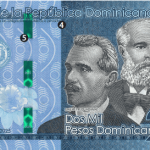The parties of the ruling party Approve Dignity and Democratic Socialism presented a document with their proposals in the framework of the discussions for the elaboration of the new constituent process.
In the letter, they indicate that “the signatory parties reaffirm the deep commitment to the changes that our country demands and with a new Political Constitution that accounts for a new social pact that is inclusive, fair and respectful of the different views of our Homeland, and that allow us to face the challenges of today and the future”.
Likewise, they point out that “it is essential to continue with the constituent process and promptly deliver certainties”, since “delaying this discussion generates institutional uncertainty that is detrimental to addressing the emergencies that Chileans experience day by day.”
On the other hand, they value the accompanying role that the Executive has sustained to achieve the agreement, for which they ask not to mix the Government’s work with the second stage of the constituent process.
Specifically, the parties maintain that “it is essential to the content of the agreement for the present political forces to determine the 100% elected nature of the constitutional body, as mandated by the October 2020 plebiscite.”
“Sovereignty is expressed when it is the citizenry that freely defines who are the people mandated to draft a new text that responds to their own needs and expectations,” they comment.
Along the same lines, they maintain that this body must be joint, since it is “a democratic condition that must be sustained”, and for this “the representative character of the body must be fulfilled both in the stage of electing its representatives and in the total composition of the constitutional body.
Regarding the participation of indigenous peoples, they declare that “Chile owes a debt to the recognition of the collective rights of indigenous peoples.”
“We believe that this recognition implies consecrating their collective participation through reserved seats in the democratic body, in a number proportional to the indigenous registry of the National Corporation for Indigenous Development,” they add.
Regarding the independents, they propose that their participation “must be guaranteed through electoral mechanisms that make it possible to be elected within the lists in conjunction with the parties.”
Institutional Principles
The government coalitions reached an agreement on the “institutional principles” that must be maintained in this proposal. Among them, is the Unitary State, the protection of the national symbols, the separation of the powers of the State and the autonomy of the Judicial Power.
“The text of the new Constitution that is submitted to a plebiscite must respect the unitary character of the State of Chile, as well as its condition as a Republic and its democratic regime. This means that the existence, autonomy and full independence of the judiciary will be respected, legislative and executive,” they maintain.
“Furthermore, the final and enforceable judicial sentences and the international treaties ratified by Chile and that are in force will be respected. In this sense, the new Constitution will respect all the human rights contained in the international treaties ratified by Chile, where we will find, among others , the right to freedom of religion, the right to live in a pollution-free environment, the right to property and the right to equality,” they state.
Regarding citizen participation, they propose that processes should be “incorporated that allow people to get involved in the constitutional debate, find out about its contents and the prioritization of its issues, through strong articulation with organizations such as municipalities and regional governments.”
They also propose the formation of “a team of experts dedicated to preparing the installation of the constitutional body through the systematization of inputs and the permanent support of the debate in all its phases. The National Congress must define the composition of the technical committee, respecting strict professional suitability criteria.
“We consider it relevant that this team conform to a joint and non-deliberative nature, safeguarding the sovereign mandate of the people elected by the citizens for these purposes. This team will systematize the inputs of the debate of the constitutional body, understanding the constituent process as one that is built based on the constitutional history of the Republic itself, including the constitutional project of former President Bachelet,” they indicate.
In order to provide prompt certainty to citizens, they propose a “constitutional itinerary that considers the election of representatives during April 2023, the functioning of the body for a period of no more than 6 months, in addition to an exit plebiscite in December 2023 with mandatory vote.
“For this to be possible, the operating regulations of the democratic body must be approved as part of the reform that enables the constitutional process,” they conclude.


















